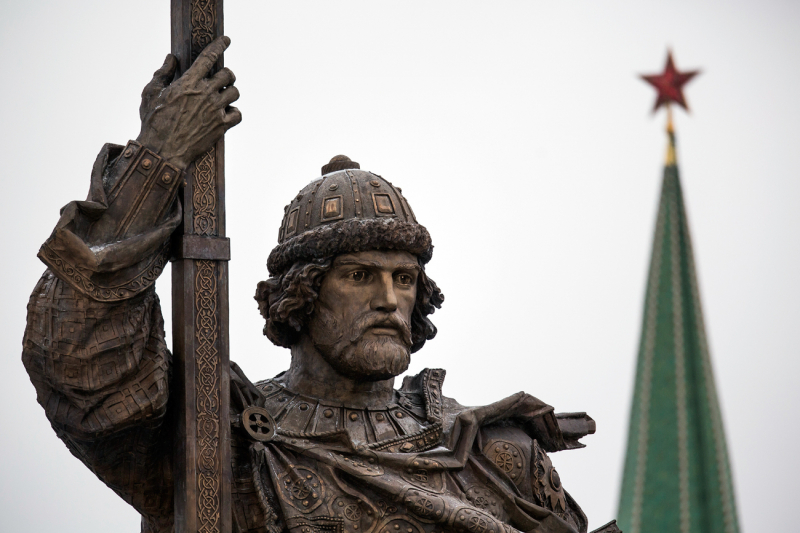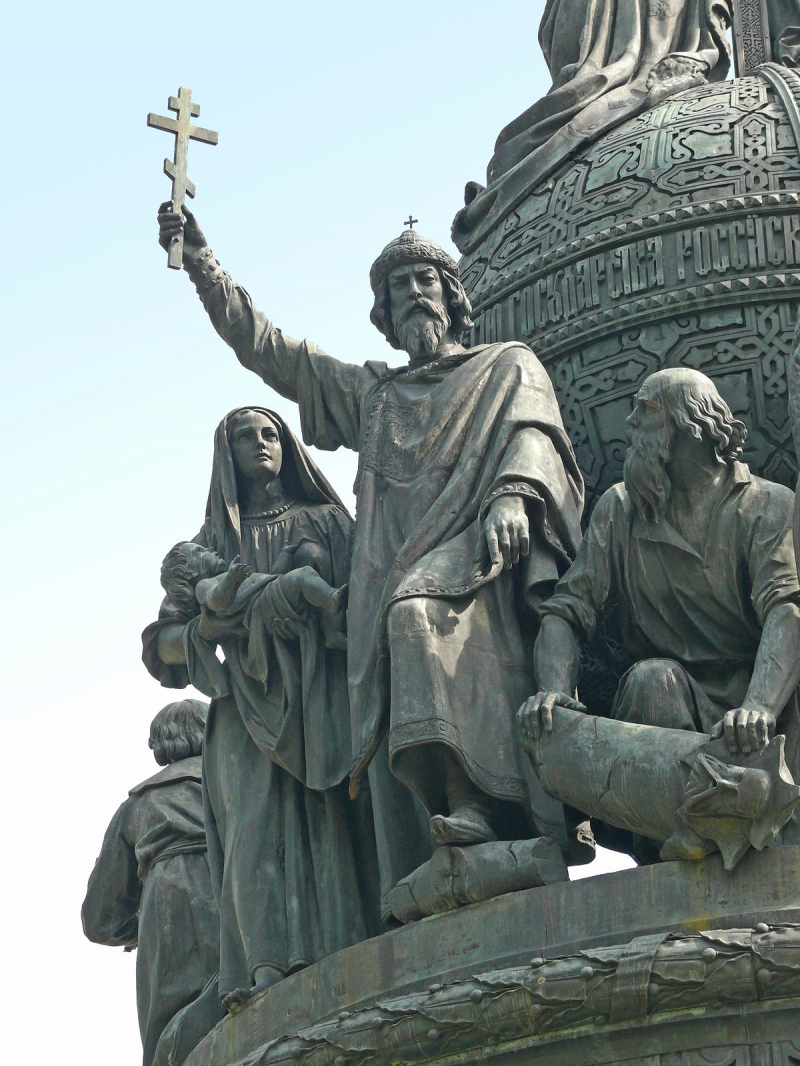Vladimir the Great
Vladimir I Sviatoslavich (958 - 15 July 1015), also known as Vladimir the Great or Volodymyr the Great, was Prince of Novgorod, Grand Prince of Kiev, and ruler of Kievan Rus' from 980 to 1015.
Vladimir's father was Rurikid dynasty Prince Sviatoslav I of Kiev. Following his father's death in 972, Vladimir, who was then prince of Novgorod, was forced to flee to Scandinavia in 976 after his brother Yaropolk murdered his other brother Oleg of Drelinia, becoming the sole ruler of Rus'. In Sweden, he assembled a Varangian army and reconquered Novgorod from Yaropolk with the help of his relative Ladejarl Hkon Sigurdsson, ruler of Norway. By 980, Vladimir had consolidated the Rus realm from modern-day Belarus, Russia, and Ukraine to the Baltic Sea, and had solidified the borders against incursions of Bulgarians, Baltic tribes, and Eastern nomads. Originally a Slavic pagan, Vladimir converted to Christianity and Christianized Kievan Rus' in 988. He is thus also known as Saint Vladimir or Saint Volodymyr.
The feast day of St. Vladimir is July 15/28 in the Eastern Orthodox, Byzantine Rite Lutheran, and Roman Catholic churches. Vladimir founded and named the town Volodymyr in northwestern Ukraine. Vladimir Monomakh is also credited with founding the town Vladimir in Russia. Some researchers believe it was also founded by Vladimir the Great .
St Volodymyr's Cathedral, one of Kyiv's largest cathedrals, is dedicated to Vladimir the Great, as was the Kyiv University at one time. He is also commemorated by the Imperial Russian Order of St. Vladimir and Saint Vladimir's Orthodox Theological Seminary in the United States.
Vladimir's memory is also preserved in numerous Russian folk ballads and legends, which refer to him as Krasno Solnyshko (the Fair Sun, or the Red Sun). With Vladimir, the Varangian period of Eastern Slavic history comes to an end, and the Christian period begins. Since the Soviet era, the appropriation of Kievan Rus' as part of national history has been a source of contention in Ukrainophile vs. Russophile schools of historiography. Today, he is regarded as a symbol in Russia, Ukraine, and Belarus.
Under him, all sectors of the economy thrived. He minted coins and oversaw foreign affairs with other countries, such as trade, bringing in Greek wines, Baghdad spices, and Arabian horses for the Kiev markets.












